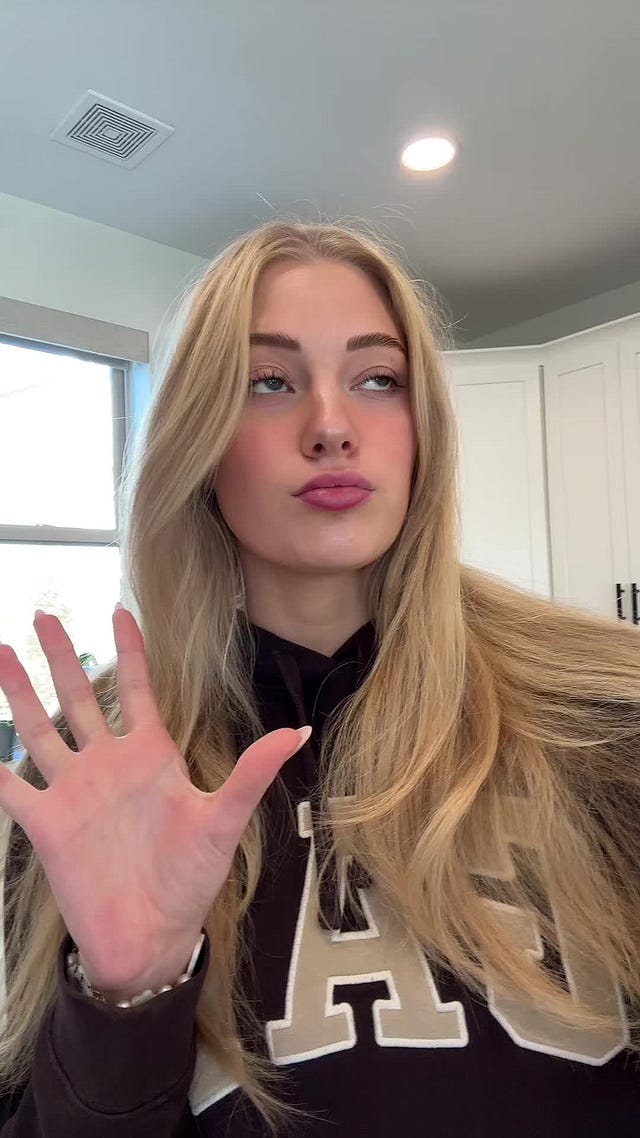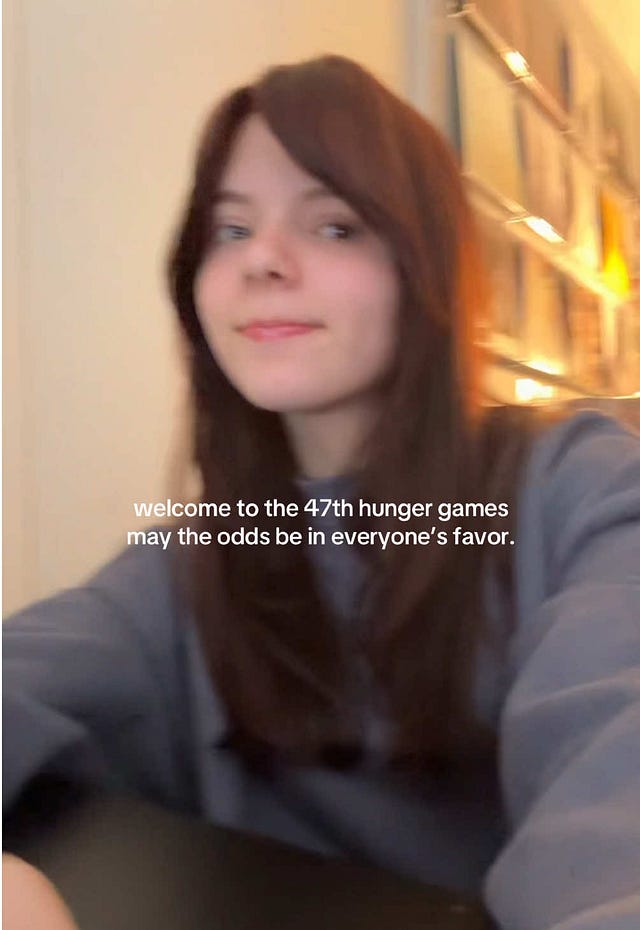America Has Cut The Music, Banned The Books, And Cannot Look Us In The Eye
So, here’s the breakdown–Carrie Underwood Went A cappella On America
Like what you read? Liking posts on Substack, sharing, and subscribing are all much appreciated ways to support the work of Words From My Wits’ End. Talk soon<3
This week’s presidential inauguration marked an all-too-familiar new era. Donald Trump has become the second president to have two non-consecutive terms, following Grover Cleveland 128 years ago. He also becomes the first convicted felon to sit in the Oval Office. The irony of a convicted felon who has made a political career based on divisive rhetoric falling on Martin Luther King Jr. Day was enough to create an eerie atmosphere on Capitol Hill, and an unsettling sense that history is repeating itself.
Instead of facing the music, Melania Trump decided to wear a wide brimmed Adam Lippes hat that covered half of her face–perhaps it was to hide her facial expressions from the disastrous implications of this second inauguration. When the once country darling winner of American Idol, Carrie Underwood, took to singing the national anthem, the backing track cut out, leaving her no choice but to perform a cappella. The moment felt strangely symbolic of the America that is taking center stage, and the image the Trump administration hopes to project to the world. The music and the fanfare has been tuned out by a frightening reality for the thousands of marginalized people living in this nation, and by a sanitized version of American music.
It’s no secret that country music was certainly prevalent at the inauguration and the following inaugural ball. Billy Ray Cyrus, Jason Aldean, and Carrie Underwood do not erase the genre’s rich, radical roots.
The term “redneck”, now often used as an insult for rural southern Americans (and often directed at those who skew right), originated from a workers’ strike. Striking coal miners in West Virginia marched on Blair Mountain in 1921 to demand workers’ rights and protections, and famously wore red bandanas around their necks, hence the name. In the decades that followed, early country music initially documented the strife and resilience of working class southerners (think Willie Nelson, Dolly Parton, Johnny Cash, and more).

The Chicks once protested the Bush administration’s invasion of Iraq after the 9/11 terrorist attacks in the early aughts. Just last year, after drag bans swept the southern U.S., Kelsea Ballerini invited drag queens to perform with her onstage at the CMAs. Maren Morris and Kacey Musgraves have additionally been vocal about their support for the LGBTQ+ community, and actively working to make Nashville a more inclusive space.
In a time in which the American dream is being twisted and propagandized to fit an incredibly narrow demographic, music, books, films, and the arts are more important than ever to indicate that the American diaspora will not disappear under the threat of the Trump administration. The rise of internet censorship is already sparking fear about freedom of speech, but it is important to note that this phenomenon has come and gone in different forms for the past 100 years.
A 22-year-old Joan Baez once performed at Martin Luther King Jr.’s March on Washington in 1963. In part due to Baez’ collaboration, Bob Dylan shaped a path for protest folk music to go mainstream. In the years that followed, Creedence Clearwater Revival’s “Fortunate Son” became a rallying cry for thousands of young men opposed to the Vietnam War draft, and the war in general. Decades later, Green Day released a rock opera titled “American Idiot” critiquing conservative politicians and their long term effects on American culture. Music is intentionally a throughline meant to reach everyone, and musicians using their platforms to educate and contextualize major historical moments has and will always be crucial to the preservation of history.
Ahead of the election, BookTok was in shambles over a creator named Liza (@readingwithliza) stating that “books are not political.” As Trump signed dozens of executive orders seeking to strip transgender rights, mass deport undocumented immigrants via ICE raids on schools and churches, end birthright citizenship, and more, he also expressed a desire to ban even more books. Already, Pen America found that book bans on material focused on race and gender ballooned by 200% during the 2023-2024 school year. In an era in which a creator-economy driven internet is now controlled almost entirely by a group of biased elite billionaires, the arts will be more vital than ever to stitch the intricate tapestry of truth.
Reading has always been political. As the polarizing figures took the stage on inauguration day, social media was flooded with posts comparing their outfits to that of characters in Margaret Atwood’s The Handmaid’s Tale and Suzanne Collins’ The Hunger Games. Books, film, and television imitate life. These dystopian stories are all rooted in real, tragic history. Collins’ was inspired to pen her series after seeing people become desensitized to the violence of the war in Iraq, and returned to write more prequels because she feels she has “something to say.” Atwood’s novels are based on the generations of struggle women have faced regarding reproductive and bodily autonomy, which feels very on-the-nose in a post-Roe v. Wade America.
Upon watching the scene unfold at the inauguration, and waking up to a new order on social media, I was reminded of a recurring quote in Christopher Nolan’s Interstellar. The space epic follows an engineer turned astronaut (Matthew McConaughey) as he embarks on a journey to save humanity from an inhospitable Earth. As he continues to sacrifice time with his family, video messages sent from the NASA scientist in charge of the mission contain quotes from a famously banned writer–Dylan Thomas. “Do not go gentle into that good night” is repeated over and over, layered artfully over the crew’s struggles to find a solution for humanity.
Education and the arts have always been the true backbone of American life, and this cannot falter in an era in which the vulnerable need even more protections. Now, more than ever, we can not afford to go gentle into this good night.






